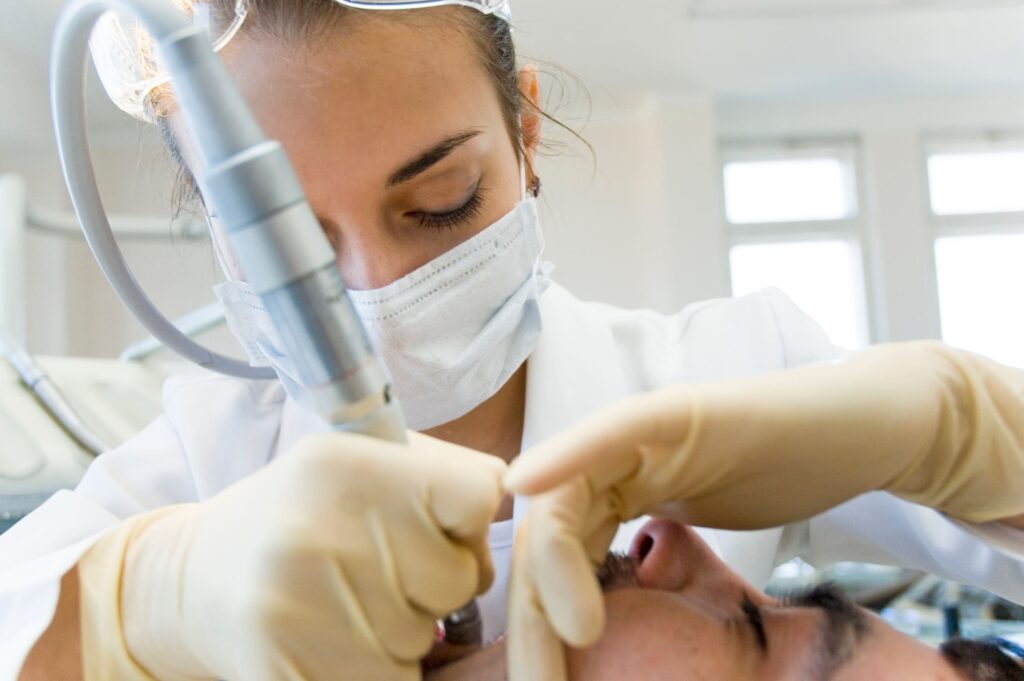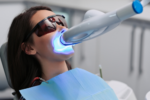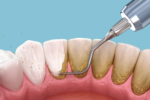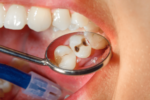Laughing gas, such as nitrous oxide, as well as general anesthesia, in which patients experience a diminished level of awareness or consciousness, are examples of sedatives used in dentistry to assist patients in relaxing during treatments. Even if a patient is not facing a critical operation or does not suffer from fear or anxiety when visiting a dental clinic, dentists frequently recommend sedation dentistry.
These are the top six benefits of sedation dentistry. For more information, please speak with a dentist near you.
What is Sedation Dentistry for Dental Procedures?
People who are nervous or afraid of going to the dentist in Edmonton can find dental care more comfortable by using sedation dentistry. The medication comes in a variety of forms, from light sedatives that can help you unwind to general anesthesia, which will put you to sleep during your dental surgery.
Benefits of Sedation Dentistry
Management of Anxiety and Fear: Patients who have a dental phobia or anxiety can relax and feel more at ease during dental operations with the use of sedation dentistry. The sedative drugs produce a sensation of serenity, which lowers anxiety and improves the experience.
Increased Comfort: Patients who have sensitive teeth and gums or a low pain tolerance may benefit from sedation dentistry. The sedatives ensure a more pleasant experience by reducing pain and suffering throughout the dental operation.
Reduced Gag Reflex: Some people have a high gag reflex, which can be uncomfortable and challenging for dental operations. The gag reflex can be reduced with the aid of sedation dentistry, making it simpler for the dentist to perform oral surgery.
Time Efficiency: By reducing the patient’s movements, reactions, and discomfort throughout the process, sedation dentistry in Edmonton helps the dentist work more quickly. This may result in quicker and more precise dental procedures, which would require fewer visits overall.
Enhanced Safety: When administered by a qualified expert, sedation dentistry is typically safe and well-tolerated. It enables the dentist to work easily and intently, lowering the possibility of patient harm during difficult operations.
Common Dental Procedures That May Benefit from Sedation Dentistry
The following common dental treatments might benefit from sedation dentistry:
- Installing dental implants.
- Wisdom teeth removal.
- Root canal therapy.
- Several teeth extracted.
- Gum (periodontal) surgery.
- Intricate reparative techniques.
- Placing a dental bridge or crown.
- Orthodontic treatment
- Addressing severe dental anxiety or phobia.
These are but a few instances and the appropriateness of sedation dentistry near you may change based on the particular requirements of the patient and the dentist’s advice.
What to Expect During a Sedation Dentistry Appointment for Dental Procedures?
You can anticipate receiving sedative medicine to aid in your relaxation and maintain your composure throughout a sedation dentistry session for dental treatments. Whether oral, inhalational, or intravenous sedation is used depends on your needs and the level of sedation. You will be relaxed and comfortable while receiving sedation, and a local anesthetic will be utilized to minimize any discomfort.
While you are unconscious, your dentist in Edmonton will complete the required dental work, and you will be closely watched. Following the procedure, you will be given post-procedure instructions and could need a ride home.
FAQ:
1. Is sedation dentistry safe for dental procedures?
Sedation dentistry is a technique that is both safe and efficient. It also has a number of advantages, such as helping patients feel comfortable and at ease while having their treatments done. It puts patients at ease as they receive the necessary dental care.
2. What are the potential side effects of sedation dentistry?
The adverse effects of oral sedation are mild. Drowsiness, headaches, dry mouth, fogginess, or a loss of dental procedure memory are a few of these possible side effects. For the majority of people, the benefits of oral sedation dentistry outweigh these modest adverse effects, which often go away within a few hours.
3. How long does the sedation effect last?
It depends on the degree of sedation received. For example, most patients fall asleep within 15 to 30 minutes of receiving IV sedation due to its fast action. You will start to wake up once the IV sedation is stopped in about 20 minutes, and you will be fully recovered from any sedative effects in six hours.
At Belle Rive Dental Clinic, we take patient comfort seriously. Should you have additional concerns or queries, don’t hesitate to give our staff a call or send us an email.








